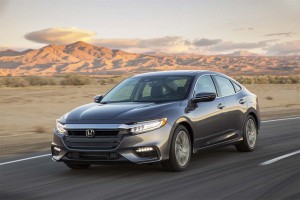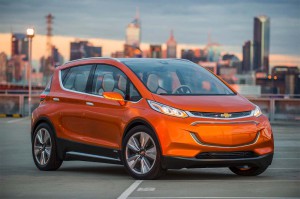
Honda is aligning with General Motors in calling for tougher, but unified fuel economy standards in the U.S.
Honda has joined General Motors on calling the EPA to abandon its proposed fuel-economy rollback and is asking federal officials to negotiate with states like California to offer a single, comprehensive update to federal fuel-economy standards.
“Despite continued development of exciting new automotive technologies, the long-term achievements of this industry will depend as much on policies as on powertrains,” Honda noted in its response to the Trump administration.
“The regulatory framework and policy levers will define the landscape in which our industry operates and competes. Managing this transition thoughtfully is of paramount importance to industry and society alike,” Honda continued regarding the administration’s proposal to freeze the fuel economy standards at 2021 levels and end California’s ability to set its own rules on fuel economy and greenhouse gas emissions.
Despite the (EPA’s) assertion that a standard “set exclusively by the federal government” could be employed to “maintain one national standard,” Honda believes doing so would – at least for the next few years – have precisely the opposite effect.
(GM asks for relief on fuel rules while betting big on EVs. Click Here for the story.)
“Efforts to preempt California would bring years of uncertainty for the auto industry while federal and state parties litigate and appeal court rulings. An effort would be made to enlist more states to take sides, further eroding the goal of a unified national market, the beneficiaries of which are the American people. A far better path would be for federal and state policymakers to negotiate a national program that is acceptable, if not ideal, for all parties including automakers,” Honda noted.
In its comments, Honda noted in its comments that a negotiated plan that doesn’t freeze fuel-economy standards at 2020 levels would be “a better path.”
“The industry is united in its request that the agencies work out an agreement with California,” Honda said.
(Click Here for more about GM setting course for its own emissions standards.)
In August, the Trump administration announced plans to freeze fuel-efficiency requirements for the nation’s cars and trucks through 2026, which was certain to trigger a legal battle with California and other states, as well as create potential upheaval in the nation’s automotive market.
The proposal represented an abrupt reversal of the approach during the Obama administration, when regulators argued that requiring more-fuel-efficient vehicles would improve public health, combat climate change and save consumers money without compromising safety.
However, eight governors from states including Texas, Nebraska, Mississippi, North Dakota and Maine signed a letter expressing support for the proposed freeze and said market forces would support more fuel-efficient vehicles without regulation, according to the Green Car Reports.
(To see more about the Green Car of the Year finalists, Click Here.)
“Government undermines both goals when it enacts policies that pit environmental preservation against free enterprise, hindering free markets, propping-up inferior solutions, and ultimately reducing prosperity,” the governors wrote.


